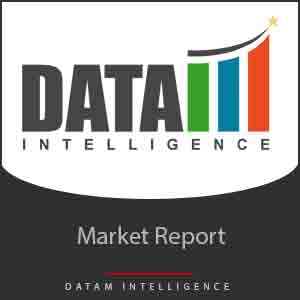
Biosimilars Market Volume Trends Growth Prospects Insights 2022
The global biosimilars market size was worth $ 11739.66 million in 2018 and is estimated to reach US$ XX million by 2026, at a CAGR of 9.65% during the forecast period (2019-2026).
2021-04-21
The global biosimilars market size was worth $ 11739.66 million in 2018 and is estimated to reach US$ XX million by 2026, at a CAGR of 9.65% during the forecast period (2019-2026). A biosimilar is a biologic that is clinically similar in its safety and efficacy to, and is approved based on a comparison to, an approved originator (or reference) product.
The biosimilars market is segmented on the basis of product type, application and region.
Monoclonal antibodies segment is expected to grow at the CAGR of 9.5% rate over the forecast period owing to the patent expiries of multiple biologic mAbs which are used for treatment of cancer and other immune disorders.
By application the market is segmented into diseases types: oncology, chronic and immune diseases, blood disorders, infections and others. Among these, the oncology segment is dominating the global market for biosimilars in terms of revenue with 29.9% market share owing to the rising prevalence of cancer including lung, liver, colorectal, stomach, breast, and blood cancer. For instance, as per the National Cancer Institute (NCI) report, it was estimated that 1,735,350 new cases of cancer are diagnosed in the US in 2018, and 609,640 people will die from the disease. Amelita, Amgen’s version of Humira, is the first adalimumab biosimilar to be approved by the US FDA in September 2016. Two European versions, named Amgevita and Solymbic, were recommended in the European Union (EU) in January 2017.
North America is expected to witness the highest CAGR of 9.7% over the forecast period because of high prevalence of chronic diseases and rising number of drug approvals. Biosimilars are very useful and low cost therapeutics in comparison to premium-priced patented biologics. They can be very cost efficient in treatment of multiple life-threatening chronic diseases. The North American segment of the market studied is majorly driven by the presence of many large research laboratories, such as Sandoz, Amgen, Teva Pharmaceutical, and others. More than 40 biosimilars are under development, including approximately 20 biosimilars ready to be released into the market, and a significant number of biosimilars are in the pipeline.
On the other hand, the Asia-Pacific is also expected to grow at significant CAGR during the forecast period, owing to the immense economic developments and booming biotechnology companies in the region. Also, high demand for the low-cost therapeutics and treatments, high prevalence and incidence of various chronic diseases, increase in R&D expenditures by the market players in the emerging economies such as India, South Korea and China are also boosting the growth of the biosimilars market in this region.
Competitive Analysis
There is high competition in the global biosimilar market. With the presence of several domestic and also international market players competing to gain maximum share. The key players are adopting various growth strategies such as acquisitions, partnerships, new product launches to survive in the market. The rising number of launches, combined with an increasing amount of quick uptake, may put biosimilar foes on their heels. For instance, Neulasta (pegfilgrastim) biosimilars have found recent success, with Coherus’ Udenyca (pegfilgrastim-cbqv) and Mylan and Biocon’s Fulphila (pegfilgrastim-imdb) capturing 25% market share in just over a year, according to a report released last week from Bernstein. In February 2020, Pfizer launched the trastuzumab biosimilar to Herceptin, Trazimera in the United States. Trazimera is available for the treatment of human epidermal growth factor receptor 2 (HER2)-overexpressing breast cancer and HER2-overexpressing metastatic gastric or gastroesophageal junction adenocarcinoma.
In January 2020, Pfizer launched its rituximab product, Ruxience (referencing Rituxan), and its biosimilar bevacizumab Zirabev (referencing Avastin).
In December 2019, Biocon, with its partner Mylan, launched the oncology biosimilar of Trastuzumab in the US, the world’s largest healthcare market. It marks the second biosimilar launch in the US after the company’s launch of oncology drug Pegfilgrastim earlier. The Trastuzumab launch is likely to give good mileage to Biocon being the first biosimilar launch of Roche’s Herceptin, which is a $ 2.9 billion brand. Further, Biocon/Mylan will be launching both the strengths (420 mg and 150 mg) of biosimilar Trastuzumab. However, though the opportunity remains big, analysts are .
In 2018, Mylan NV launched Hulio™, a biosimilar to AbbVie's Humira® (adalimumab), across major markets in Europe. In October 2018, Sandoz, a Novartis division in biosimilars, received US Food and Drug Administration (FDA) approval for its biosimilar, HyrimozTM (adalimumab-adaz) for treatment of rheumatoid arthritis, juvenile idiopathic arthritis in patients four years of age and older.
In November 2018, Teva receives FDA Approval of HERZUMA® (trastuzumab-pkrb), a Biosimilar to HERCEPTIN®, for the Treatment of HER2-Overexpressing Breast Cancer for Certain Indications
About Us:
DataM Intelligence was incorporated in the early weeks of 2017 as a Market Research and Consulting firm with just two people on board. Within a span of less than a year, we have secured more than 100 unique customers from established organizations all over the world.
For more information:
Sai Kiran
Sales Manager at DataM Intelligence
Email: [email protected]
Tel: +1 877 441 4866
Website: www.datamintelligence.com
Found it interesting?
Sai Kiran
Sales Manager at DataM Intelligence
Email: [email protected]
Tel: +1 877 441 4866
We have 5000+ marketing reports and serve across 130+ countries
#biosimilars market, #biosimilars market size, #biosimilars market share, #biosimilars market trends, #biosimilars market value, #biosimilars market growth, #biosimilars market demand, #biosimilars market industry forecast, #biosimilars market outlook, #biosimilars market analysis, #biosimilars market applications, #biosimilars market companies, #datamintelligence
